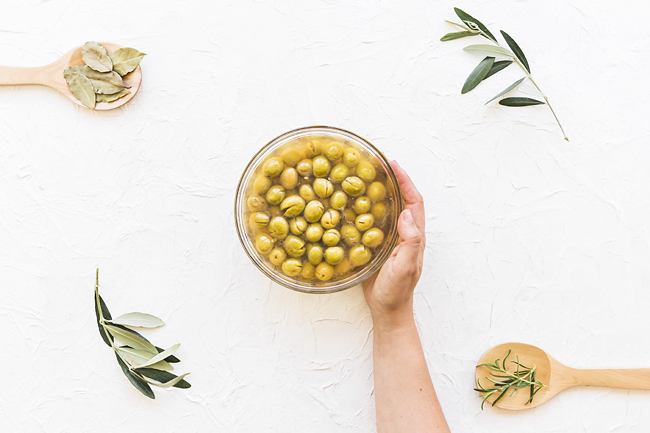CNA/NEW YORK TIMES – Olive oil-infused coffee? Starbucks bets you’ll drink it.
It wouldn’t be the oddest food and beverage product olive oil has seeped into. We mix it into ice cream and whisk it into chocolate cake. On TikTok, olive oil fans knock back shots of the liquid, saying it clears their skin and helps them lose weight. You can dunk grapefruit in olive oil or dribble it into a dirty martini, add it to granola or beat it into lemon curd.
Nutrition experts tout olive oil as a health-conscious component of your meal. Olive oil is linked with a range of health benefits, from lowered blood pressure to reduced inflammation, said a registered dietitian at the Cleveland Clinic Julia Zumpano. Here’s what we know about what olive oil can – and can’t – do for your health:
OLIVE OIL MIGHT HELP YOUR HEART
A wealth of research has linked the Mediterranean staple to promising health outcomes: a reduced risk of cancer, potential prevention of Alzheimer’s disease, even a lower risk of early death.
But many of these studies have looked at the health outcomes of people who eat olive oil as part of a larger Mediterranean diet, in which olive oil replaces less healthy sources of fat like butter, as opposed to isolating the health effects of olive oil itself.

It’s tricky to tease out just how large a role olive oil played in those health outcomes, said a research scientist at the Harvard TH Chan School of Public Health Marta Guasch-Ferré. But the most robust research we have focusses on olive oil’s benefits for the heart, she added.
Dr Guasch-Ferré led a study published in 2022 that found that people who consumed more than half a tablespoon of olive oil per day had a roughly 19 per cent lower chance of dying from cardiovascular disease than those who rarely or never consumed olive oil. And a 2022 review of 13 studies showed strong associations between higher olive oil consumption and reduced risk for cardiovascular disease and death from other causes.
Researchers have circled around a few theories as to why olive oil might protect the heart.
Olive oil contains monounsaturated fatty acids, which can reduce levels of low-density lipoprotein, LDL – sometimes called “bad” cholesterol – in your blood, according to the American Heart Association. High amounts of LDL can build up in the inner walls of the blood vessels, forming thick deposits called plaques that can narrow and clog major arteries; monounsaturated fats may help stave off this damage. Olive oil is also rich in antioxidant compounds called polyphenols, which can help protect your cells from damage, said Dr Selvi Rajagopal, an assistant professor of medicine at Johns Hopkins University School of Medicine.
HOW TO INCORPORATE OLIVE OIL INTO YOUR DIET
Despite the cardiovascular benefits of olive oil, it’s still a fat, Dr Rajagopal said – which means it’s fairly high in calories.
Drinking olive oil straight or mixed into a beverage may just add unnecessary calories into your diet.
The way olive oil is made can alter its health benefits, too. The less processed the oil, the higher it is in polyphenols, Ms Zumpano said.
Exposing the oil to extreme heat or chemical solvents may degrade the polyphenols, she said. So when possible, opt for extra virgin olive oil (which is typically made just by mechanically crushing olives) or virgin olive oil, which typically retains polyphenol levels, over a regular bottle of olive oil.
No matter what kind of olive oil you choose, though, it’ll still have some health perks, Dr Rajagopal said: “You don’t have to get the most cold-pressed, pure, expensive kind.”
Dr Guasch-Ferré recommended using olive oil as a replacement for less healthy fat sources – especially butter and full-fat dairy products, which contain saturated fats that can raise your LDL levels.
Try to cook with olive oil instead of butter, or mix it with herbs and spices to drizzle over a salad instead of using a creamy dressing from a bottle, Ms Zumpano said. But aim for no more than around three or four tablespoons of olive oil per day, Dr Guasch-Ferré advised, as that amount is associated with the greatest benefits. And don’t expect olive oil, on its own, to transform your overall health.
“You can’t take that one thing in isolation and say, let me just ramp it up and hope that my health improves,” Dr Rajagopal said. “You have to look at your whole diet.”





